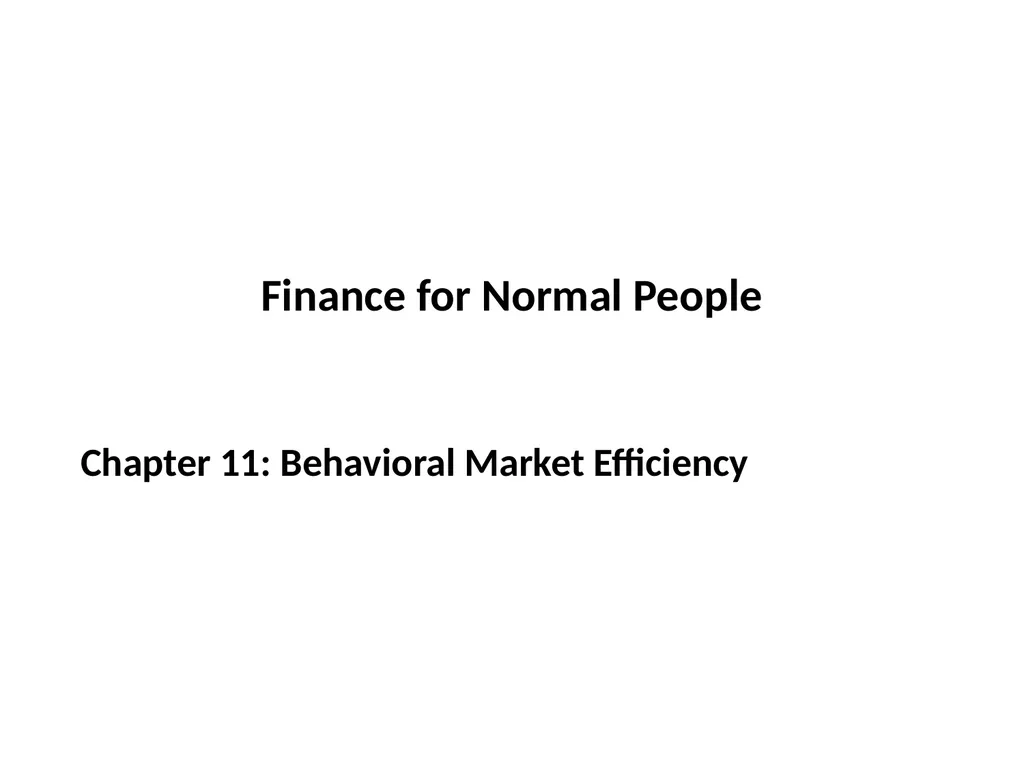
Finance for Normal People Chapter 11: Behavioral
Author: tawny-fly | Published: 2025-05-28
Description: Finance for Normal People Chapter 11: Behavioral Market Efficiency Behavioral Market Efficiency Efficient markets in standard finance Eugene Fama described an efficient market as one in which prices always fully reflect available
Download Presentation
Download the PPT/PDF: Download
Transcript:
Loading transcript…